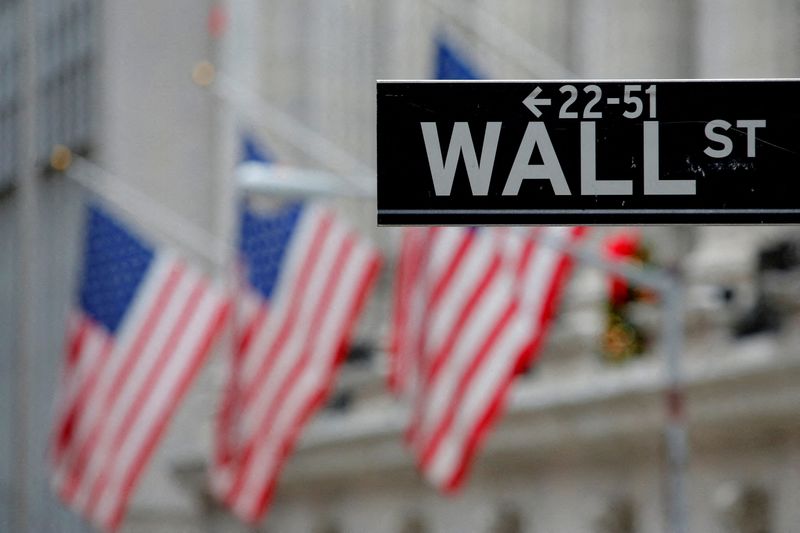Analysis-Wall Street strikes back against New York’s sovereign debt bill
2024.09.26 01:13
By Libby George and Rodrigo Campos
LONDON/NEW YORK (Reuters) – Investors in emerging market sovereign bonds, alarmed by efforts to limit their debt restructuring options, are adding clauses to bond deals that would allow them to switch jurisdictions to avoid such curbs.
Two recent debt agreements, one pending in Sri Lanka and another agreed last year in Suriname, included clauses that would allow investors to change the location where potential disputes settle.
Such steps show that investors are mounting their defence against law changes that proponents say would help poor countries secure debt relief, but which financial firms argue could make emerging nations’ bonds too risky for investors or too expensive for borrowers.
“The ideas …are not going to go away,” Andrew Wilkinson, senior restructuring partner at law firm Weil Gotshal said regarding proposed bills. “They will keep coming up, because there is a problem.”
Under the proposed changes to laws in New York state, which is the location for roughly half of international bond deals, commercial creditors could see their recoveries capped at the level of bilateral official lenders. They could also be forced into a preset formula to decide who gets what in a restructuring.
The rationale is that it would streamline the default process and spare the indebted nations lengthy and costly negotiations. But investors argue that they could be forced to take losses which might be manageable for government creditors but too steep for the private ones.
“You will be imposing (the same) haircut when you have two different lenders with two complete different reasons for lending,” said Rodrigo Olivares-Caminal, chair in banking and finance law at Queen Mary University of London.
“You are lending millions, and you have a fiduciary duty towards your investors.”
Creditors also warn that changes like those mooted in New York could backfire – making them avoid lending to poor countries or demand higher returns to justify the risk.
The New York bills did not pass this year or last, but amid what the World Bank describes as a silent debt crisis, with emerging nations’ external debt-servicing costs estimated to hit $400 billion this year, support for law changes is growing on both sides of the Atlantic.
SLOW AND PAINFUL
A raft of recent defaults from Zambia to Ethiopia fuelled a debate about debt fairness – particularly as Zambia’s restructuring took three painful years.
Debt justice advocates including Ben Grossman-Cohen, director of campaigns for Oxfam America, have supported the New York bills and he said the Sri Lanka contract clause was “just an attempt to grab headlines.”
For others, like Olivares-Caminal, Sri Lanka’s bond provisions mark a watershed moment.
“In Suriname it was a technicality, and it went unnoticed. But Sri Lanka, I think will send a strong message,” Olivares-Caminal said.
He said the clauses were a direct reaction to “fires” in the two main jurisdictions – New York state and England, where similar proposals have gained renewed traction since the Labour party took power.
In Suriname’s case, negotiators inserted a clause allowing 50% of bondholders to seek a vote to change the jurisdiction underpinning the bonds, while giving the country the power to veto the request.
In Sri Lanka, just 20% of holders of any particular bond could force a vote to change the jurisdiction from New York to England or Delaware. The government has no veto right.
NOWHERE TO RUN?
Even those who support changes to make debt reworks fairer to the developing world say lawmakers must tread carefully.
Rebeca Grynspan, Secretary-General of the UN Trade and Development agency (UNCTAD), told Reuters several provisions introduced over the past decade already offer safeguards against rogue creditors holding up debt deals in pursuit of more generous returns.
Newer language, such as natural disaster clauses, is also protecting debtor countries, she said.
“Legal instruments are important but if we overdo it, the private sector will go somewhere else to issue debt,” she said.
Shifting from New York to English law would be relatively straightforward, restructuring experts say, given both locations have legal systems honed over decades to handle sovereign debt defaults and their legal complexities.

Moving elsewhere would be problematic, Weil Gotshal’s Wilkinson said.
“You don’t just create a restructuring regime out of whole cloth and expect it to work,” he said. “You need established law and you need judges who are experienced in applying them.”








